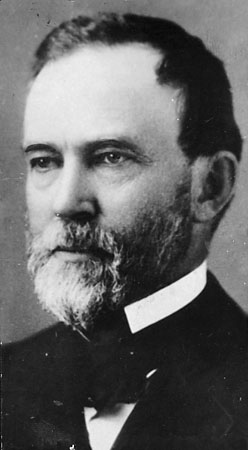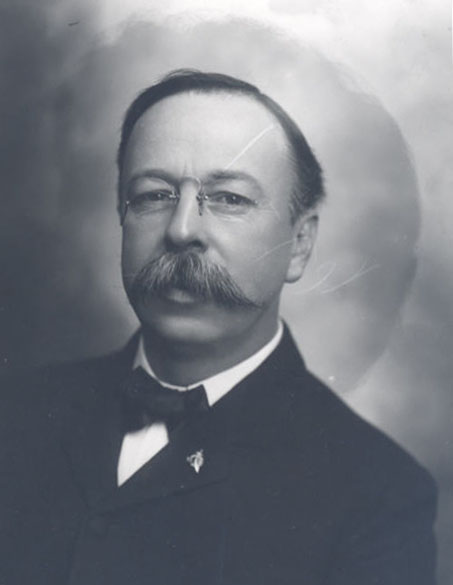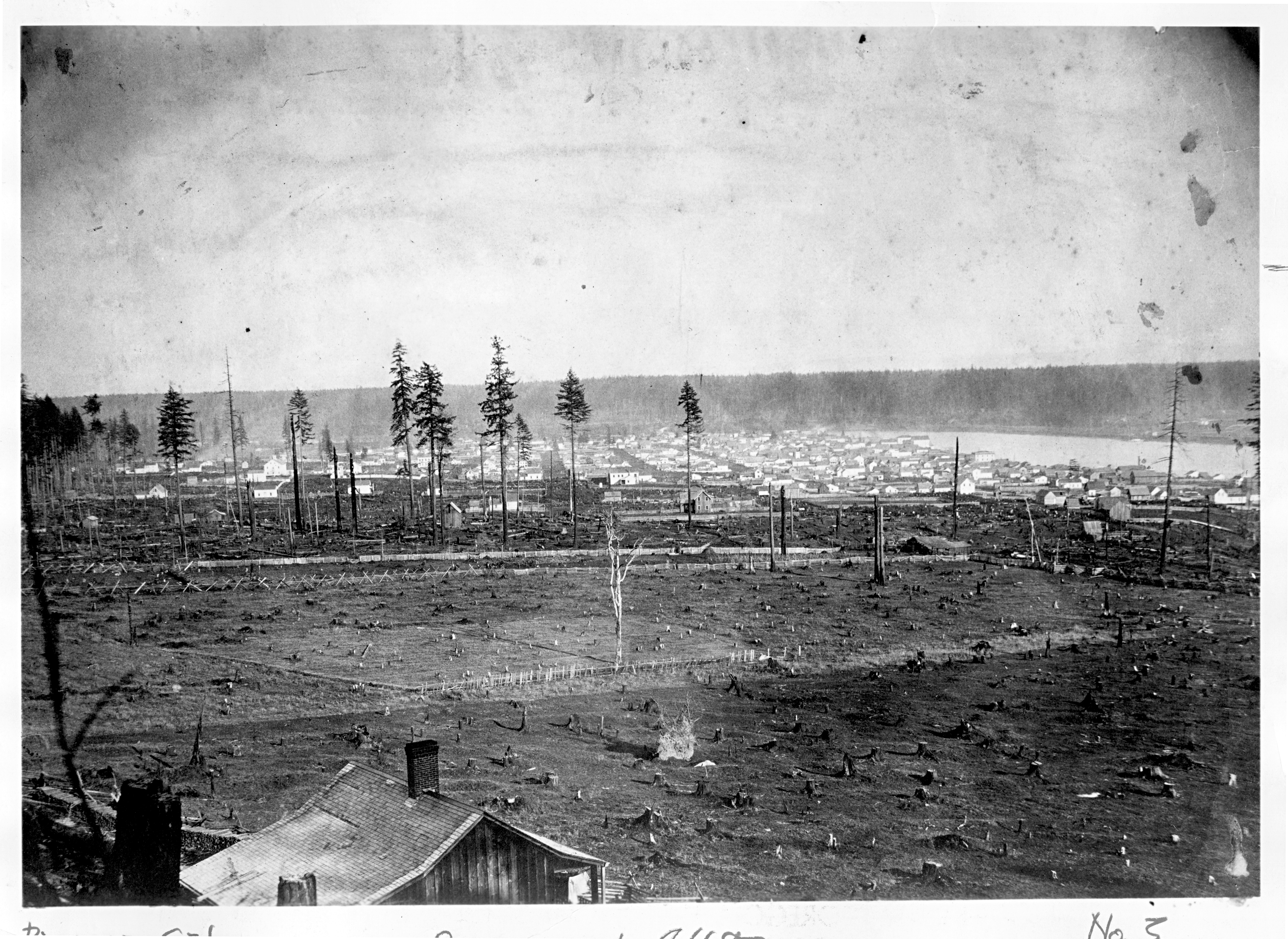Sylvester Pennoyer was a Democratic governor (1887-1895) and mayor of Portland (1896-1898) in a time when Oregon was an overwhelmingly Republican state. A charismatic speaker and champion of the underdog, particularly Oregon's farmers and its expanding class of white workingmen, he was a hero to thousands of disgruntled citizens during a period when labor unrest and the power and influence of banks, railroad, and navigation companies were dominant. He regularly lampooned Oregon's business establishment, even though he was part of it. During the Civil War, he favored both the Confederacy and slavery, positions not held by a majority of Oregonians.
Pennoyer was born in the village of Groton, New York, on July 6, 1831, the son of a prosperous farmer and one-time legislator. He arrived in Portland in 1855, fresh out of Harvard Law School, to teach at the city's free public school. Underfunded, the school closed months later. Pennoyer then taught in the Multnomah County Schools and in 1860 was appointed superintendent, a post he held for two years. He left education to go into the lumber business in 1862. In 1868-1869, he edited and then owned the Oregon Herald. By the early 1880s, he was a successful Portland attorney and civic leader.
In early 1886, both Washington and Oregon experienced mass demonstrations and sometimes violence against a booming Chinese population. Hundreds of frustrated white workingmen in Portland wanted to expel the city's 4,000 Chinese residents. In March, a loose association of workers chose Pennoyer as their spokesperson. Campaigning on the slogan "Keep the Mongolians Out," he rode his growing popularity into the governor’s office.
A champion of reforming certain business practices, Pennoyer had campaigned in favor of a state railroad regulatory commission, which the legislature established in 1887, but his legislative successes were few. He was the first prominent Oregon politician to publicly endorse a graduated income tax. He was also the first Oregon governor to serve two full terms and the only Democrat to do so for the next one hundred years (until John Kitzhaber in 1995-2003). Pennoyer was also mentor to George Chamberlain, Oregon's first attorney general (1891-1894), governor (1903-1909), and U.S. senator (1909-1921).
Although Pennoyer remained a Democrat throughout his life, he endorsed the Populist Party platform in the early 1890s. He supported an eight-hour workday and the minting and circulating of more silver coinage.
Over the objections of Portland's Republican establishment, whose members referred to him as Sylpester Annoyer, sixty-five-year-old Pennoyer was elected mayor. He presided over a term notable for his firing of the entire Portland police department so he could appoint his own police chief.
Ted Geer, governor from 1899 to 1903, once described Pennoyer as "exceedingly stiff” with a “bearing almost painfully dignified." He was "approachable and cordial...a kindly man at all times." Pennoyer died in Portland on May 30, 1902.
-
![]()
Sylvester Pennoyer.
Courtesy Oregon Hist. Soc. Research Library, ba018278
Related Entries
-
![George Chamberlain (1854-1928)]()
George Chamberlain (1854-1928)
Largely because of his reputation as a scrupulously honest attorney gen…
-
![Portland]()
Portland
Portland, with a 2020 population of 652,503 within its city limits and …
Related Historical Records
Map This on the Oregon History WayFinder
The Oregon History Wayfinder is an interactive map that identifies significant places, people, and events in Oregon history.
Further Reading
Geer, T.T. Fifty Years in Oregon. New York: Neale Publishing Company, 1912.
Lansing, Jewell. Portland: People, Politics and Power, 1851-2001. Corvallis: Oregon State University Press, 2003.
MacColl, Kimbark. Merchants, Money, and Power. Athens: The Georgian Press, 1988.



